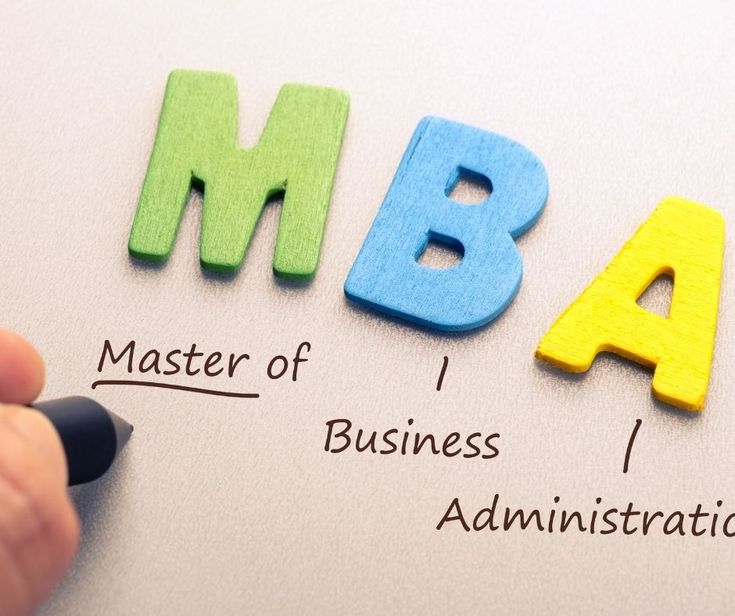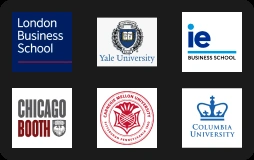
Deferred MBA Programs
Deferred MBA: Everything You Need to KnowDeferred MBA programs are becoming increasingly p…
Table of Contents

Thinking about pursuing an MBA that stands out on the global stage? Look no further than the Rotman School of Management, part of the University of Toronto. Known for its innovative approach to business education, Rotman is consistently ranked among the top MBA programs worldwide.
What sets it apart? Rotman is located in the heart of Toronto, Canada’s financial and cultural hub. This prime location offers unparalleled opportunities for networking, internships, and career growth, particularly in industries like finance, technology, and consulting.
Let’s dig deeper into what makes the Rotman MBA experience unique.
Curious about who your classmates might be? Here’s a breakdown of the Rotman MBA class:
Metric | Details |
| Class Size | 266 students |
| Gender Distribution | 49% women, 51% men |
| Nationalities Represented | 70+ |
| International Students | 70% |
| Average Age | 28 years |
| Average Work Experience | 5 years |
| Industries Represented | Finance, Consulting, Technology, Healthcare, and Others |
What about academics? Rotman values well-rounded candidates with strong quantitative and analytical skills. Here’s the academic snapshot:
Academic Metric | Average |
| Average GMAT Score | 672 (Middle 80% range: 630-720) |
| GRE Scores (Quant/Verbal) | Estimated average: 160/160 |
| Undergraduate GPA | 3.6 (on a 4.0 scale) |
Rotman’s student body is diverse, with representation from over 70 countries and a mix of academic and professional backgrounds. This diversity enriches discussions, giving you a truly global perspective.
Thinking about your chances of getting in? Here’s what you need to know:
Admissions Metric | Details |
| Acceptance Rate | ~36% (mbaandbeyond.com) |
| Year-on-Year Application Growth | Applications have grown steadily, reflecting Rotman’s rising global appeal. (e-gmat.com) |
| Competitiveness | Highly competitive, with emphasis on leadership potential and academic rigor. |
“If you’re serious about applying, focus on showcasing your leadership potential and how you can contribute to the diverse Rotman community. And don’t forget to ace that video interview—it’s a chance to let your personality shine!”
If you’re considering the Rotman MBA, attending one of their events is a fantastic way to explore the program. These events are designed to give prospective students a deep dive into the Rotman experience and connect them with the school’s vibrant community.
Full-Time MBA Open House:
The open house is an essential event for anyone thinking of applying. Here’s what you can expect:
Pro tip: Come prepared with questions about the program and admissions process—it’s a great way to make a strong impression.
Networking and Alumni Events:
Rotman hosts numerous events throughout the year to connect students with industry leaders and alumni. These include:
These events are invaluable for building connections and gaining a better understanding of Rotman’s post-MBA opportunities.
When evaluating an MBA program, rankings and accreditations offer a quick snapshot of its reputation and quality. Let’s see where Rotman stands:
Rankings:
Ranking Organization | Global Ranking | Key Strengths Highlighted |
| Financial Times | #85 (2023) | Career progression, salary increase, diversity |
| QS Global MBA Rankings | #1 in Canada, #44 globally (2023) | Innovation, location, career outcomes |
| The Economist | #2 in Canada, #59 globally (2023) | Teaching quality, alumni satisfaction |
Rotman’s consistent presence in global rankings underscores its strong academic foundation and emphasis on career success.
Peer School Comparisons:
How does Rotman stack up against its peers in Canada?
School | Global Rank (QS) | Strengths |
| Rotman (Toronto) | #44 | Innovation, leadership, Toronto location |
| Sauder (UBC) | #111 | Entrepreneurship, sustainability |
| Schulich (York) | #77 | Global exposure, strong marketing focus |
Rotman stands out for its integrative thinking approach and strong connections to Toronto’s financial district.
Applying to Rotman requires meeting specific academic and professional benchmarks. Here’s everything you need to know:
Basic Eligibility Criteria:
Application Components:
A successful application includes:
Component | Details |
| Application Form | Online form capturing personal, academic, and professional details. |
| Resume | A one-page summary highlighting professional achievements and leadership roles. |
| Essays | A 500-word essay addressing your goals and fit for the Rotman MBA. |
| Video Interview | A recorded session with two behavioral and situational questions. |
| Transcripts | Official transcripts from all post-secondary institutions. |
| Letters of Recommendation | Two LORs, preferably from professional supervisors. |
Insider Tip: Don’t underestimate the video interview—it’s your chance to showcase your personality and communication skills.
Application Timeline:
Rotman typically follows a three-round application process. Here’s a snapshot:
Round | Application Deadline | Decision Notification |
| Round 1 | September | December |
| Round 2 | January | March |
| Round 3 | April | June |
Applying early is recommended, especially if you’re seeking scholarships or are an international applicant requiring a visa.
Where would you like to explore next? Should we dive into Rotman’s curriculum, tuition and scholarships, or post-MBA career outcomes? Let me know!
The application process for the Rotman MBA is comprehensive, requiring careful preparation of several documents. Let’s break it down:
The Rotman MBA curriculum is designed to balance theoretical knowledge with real-world application. Here’s an overview:
Rotman’s second-year curriculum is all about customization. With over 90 electives and multiple concentrations, students can tailor their MBA to suit their career goals.
Popular Elective Courses:
Elective | Description |
| Behavioral Economics | Understanding consumer decision-making patterns. |
| Advanced Corporate Finance | In-depth exploration of financial modeling and valuation. |
| Big Data and Analytics | Harnessing data to drive strategic decisions. |
| Marketing Strategy | Crafting effective branding and market entry strategies. |
Concentrations and Customization Options:
Rotman offers several areas of specialization, including:
Tip: “Choose electives and concentrations that align with your post-MBA goals. Speak to alumni or career advisors to find courses that will boost your employability in your target industry.”
Creative Destruction Lab (CDL):
One of Rotman’s standout features is its Creative Destruction Lab (CDL), an entrepreneurial program designed to nurture disruptive startups. Here’s why CDL is a game-changer:
Tip: “If you’re interested in entrepreneurship or venture capital, CDL is a must-explore opportunity. Many students have launched their startups through this platform!”
Alumni Insights:
Recent alumni frequently highlight these aspects of Rotman:
Insight: "Rotman taught me how to balance analytical rigor with creative problem-solving. That combination has been pivotal in my consulting career," says a recent graduate.
Pursuing an MBA is an investment, and it’s essential to understand the costs and available financial support.
Tuition Fees and Additional Expenses:
Category | Canadian Students | International Students |
| Tuition Fees | CAD 92,540 | CAD 133,740 |
| Books and Supplies | CAD 2,000 | CAD 2,000 |
| Living Expenses (estimated) | CAD 20,000/year | CAD 20,000/year |
| Health Insurance | Included | CAD 720 |
Total Estimated Cost: CAD 115,000–155,000, depending on residency and lifestyle.
Scholarships and Financial Aid:
Rotman offers various scholarships to help offset costs, including:
Example: The Rotman Entrance Awards range from CAD 10,000 to full tuition.
Loans and Financing Support:
Big Brother Tip: “Apply early for scholarships, and don’t hesitate to contact Rotman’s financial aid office for guidance—they’re there to help!”
A key factor in choosing an MBA program is understanding its career impact. Here’s a look at Rotman’s employment outcomes:
Employment Statistics:
Metric | Details |
| Placement Rate (3 months post-MBA) | 91% |
| Average Starting Salary | CAD 104,622 (e-gmat.com) |
| Average Signing Bonus | CAD 17,357 (zollege.in) |
Top Recruiters and Industries:
Industry | Percentage of Graduates |
| Financial Services | 34% |
| Consulting | 23% |
| Technology | 18% |
| Healthcare and Others | 25% |
Top Recruiters: McKinsey & Company, BCG, Amazon, RBC, Deloitte, Microsoft, and TD Bank.
Internships and Co-op Opportunities:
Rotman students benefit from:
Tip: “Leverage Rotman’s alumni network to secure internships—it’s one of your best resources for landing dream roles!”
Crafting a standout application for the Rotman MBA requires careful attention to the essays and interviews. These elements provide the admissions committee with insights into your personality, leadership potential, and career aspirations.
The essays are a critical part of the Rotman MBA application process. They allow applicants to highlight their unique experiences, goals, and fit for the program. Here’s what you need to know:
Prompt: “Describe your goals and why Rotman is the right place for you to achieve them.”
How to Approach It:
Strategies for Success:
Example: Instead of saying, “I want to improve my leadership skills,” say, “I want to refine my leadership skills through Rotman’s integrative thinking curriculum and its Leadership Development Lab, preparing me to lead cross-functional teams in a global tech company.”
Prompt: “Is there anything else that you think we should know about you?”
When to Use It:
Tips for Writing the Optional Essay:
Tip: “Only use the optional essay if you have something meaningful to add. Keep it concise and focus on solutions rather than problems.”
Interviews are a crucial step in the Rotman MBA admissions process, designed to evaluate your personality, communication skills, and fit for the program. Here’s what to expect:
Tip: “Prepare examples that align with Rotman’s values, like innovation and collaboration. Practice answering concisely without sounding rehearsed.”
What sets Rotman apart from other MBA programs? Let’s dive in:
Insight: “Rotman’s blend of academic rigor, innovative thinking, and location in Toronto creates a unique trifecta for career growth.”

